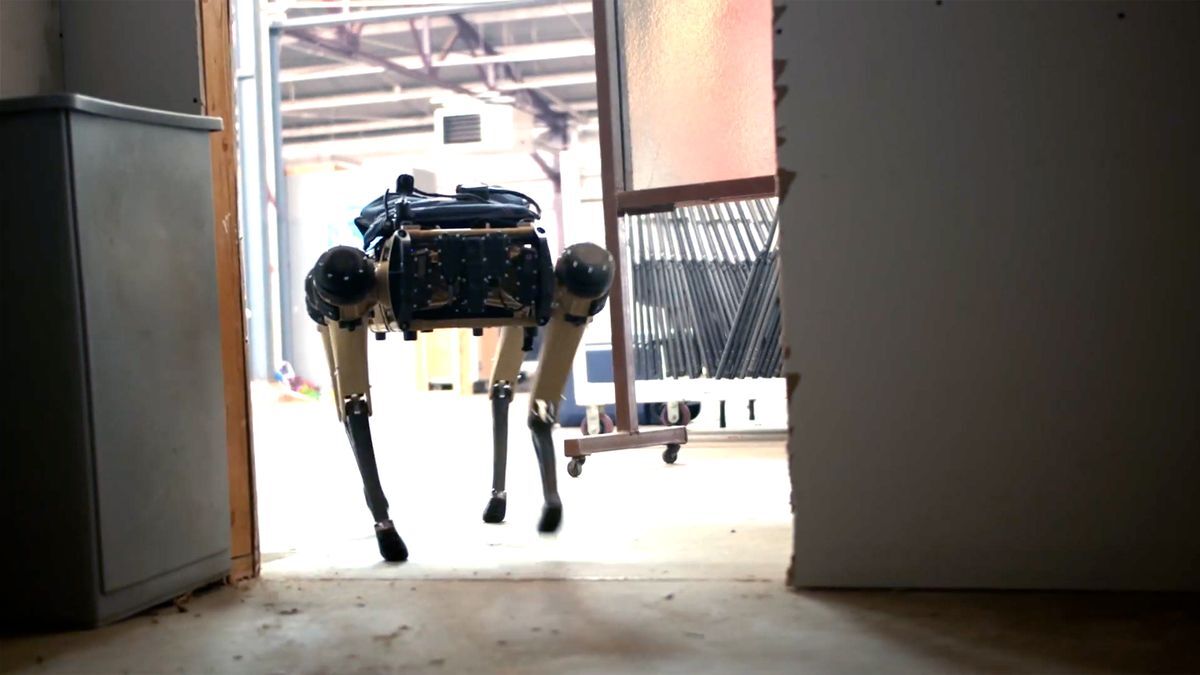The Department of Homeland Security (DHS) has announced that it has developed a four-legged robot designed to jam the wireless transmissions of smart home devices. The robot was revealed at the 2024 Border Security Expo and is called NEO. It is built using the Quadruped Unmanned Ground Vehicle (Q-UGV) and looks a lot like the Boston Dynamics Spot robot.
According to the transcript of the speech by DHS Federal Law Enforcement Training Centers (FLETC) director Benjamine Huffman, acquired by 404 Media, NEO is equipped with an antenna array that is designed to overload home networks, thus disrupting devices that rely on Wi-Fi and other wireless communication protocols. It will thus likely be effective against a wide range of popular smart home devices that use wireless technologies for communications.



Isn’t that illegal, as you’re basically radio jamming? Devices have that little FCC sticker saying it shouldn’t interfere with other devices. During my amateur radio license studying that was mentioned.
I’m curious about the privacy aspect; would someone be able to see my network by plugging in to the neighbors house, perhaps with some exploits involved?
Well, VDSL and VDSL2 use 138kHz to 12MHz and then 30-35.5MHz (according to the german Wikipedia - I couldn’t find that table in the English article.)
Powerline has several standards (same as above, couldn’t find that table in the English Wikipedia), but the frequency range starts at 2-4MHz and ends at 20-30MHz (with one standard using 30-68MHz).
For DSL, there’s not really a problem using these frequencies but powerline transmits at a higher power and intentionally uses cross talk as a feature. The byproduct is that now your power cables act as an antenna and the Powerline signal “leaks”.
Medium Frequency radio stations e.g. use the band from about 520kHz to 1.6MHz which correlates with Powerline and can be affected by it.Edit: Medium Frequency transmissions in general (300kHz - 3MHz) and High Frequency transmissions (3MHz - 30MHz) can be affected, but radio stations shouldn’t (~530kHz - 1.6MHz).And yes, if you’re transmitting “strong enough” over Powerline (depending on your adapter and how well your cables act as an antenna) one could recieve your signal and decode it. IIRC the signal is encrypted (somewhat like WiFi - the adapters need to be paired to talk to each other), but I don’t know much details about it.
Depends on what they’re doing.